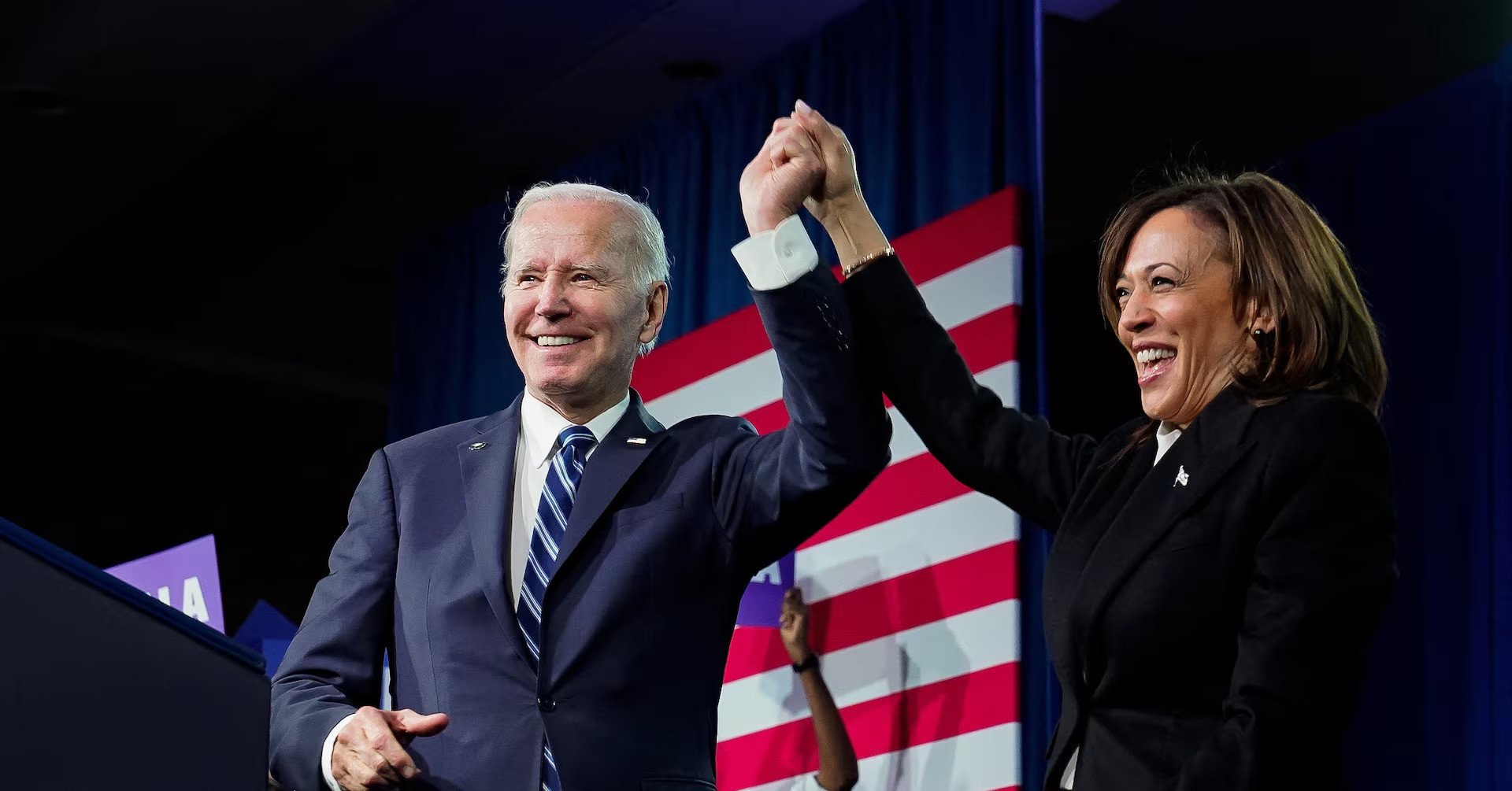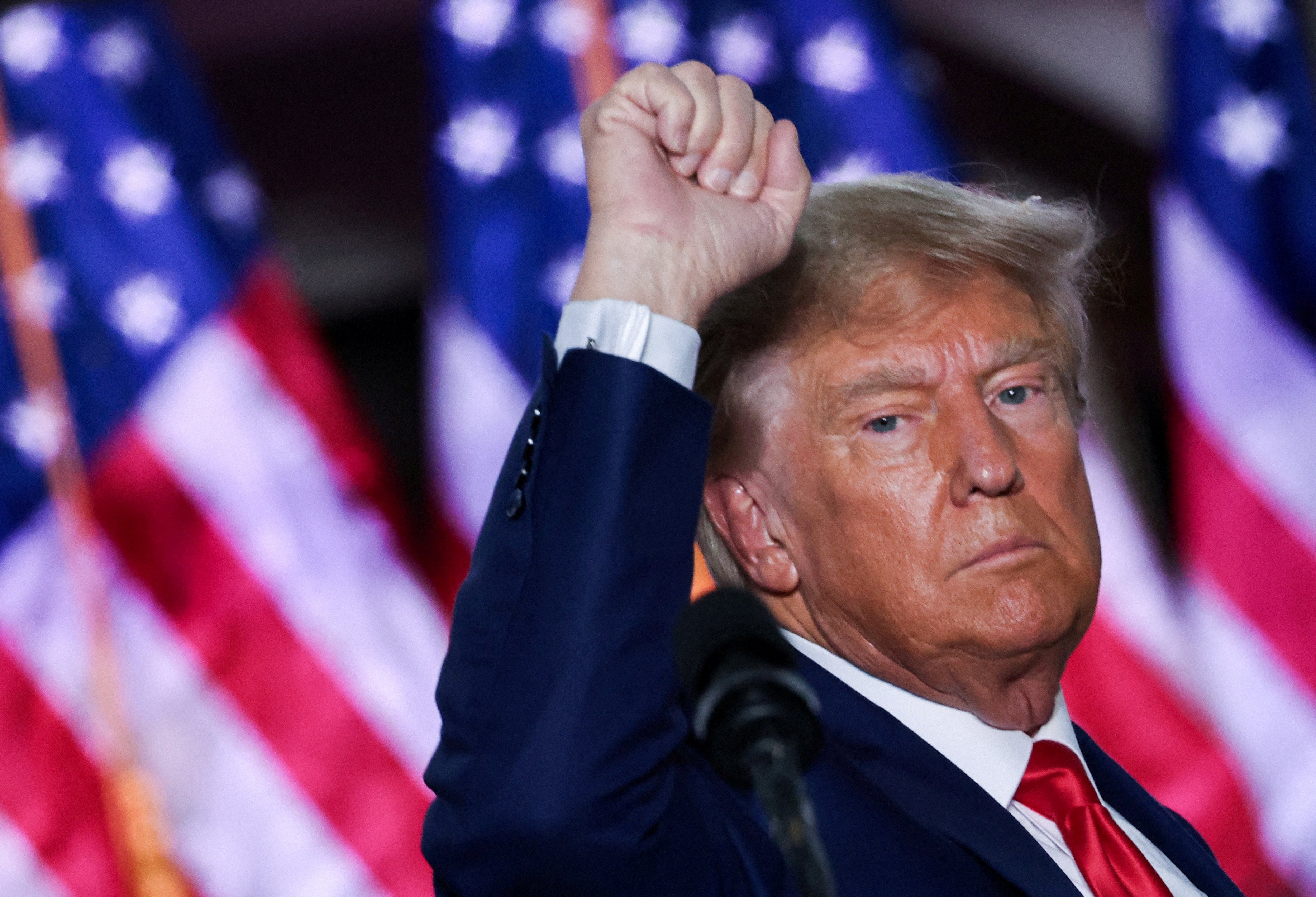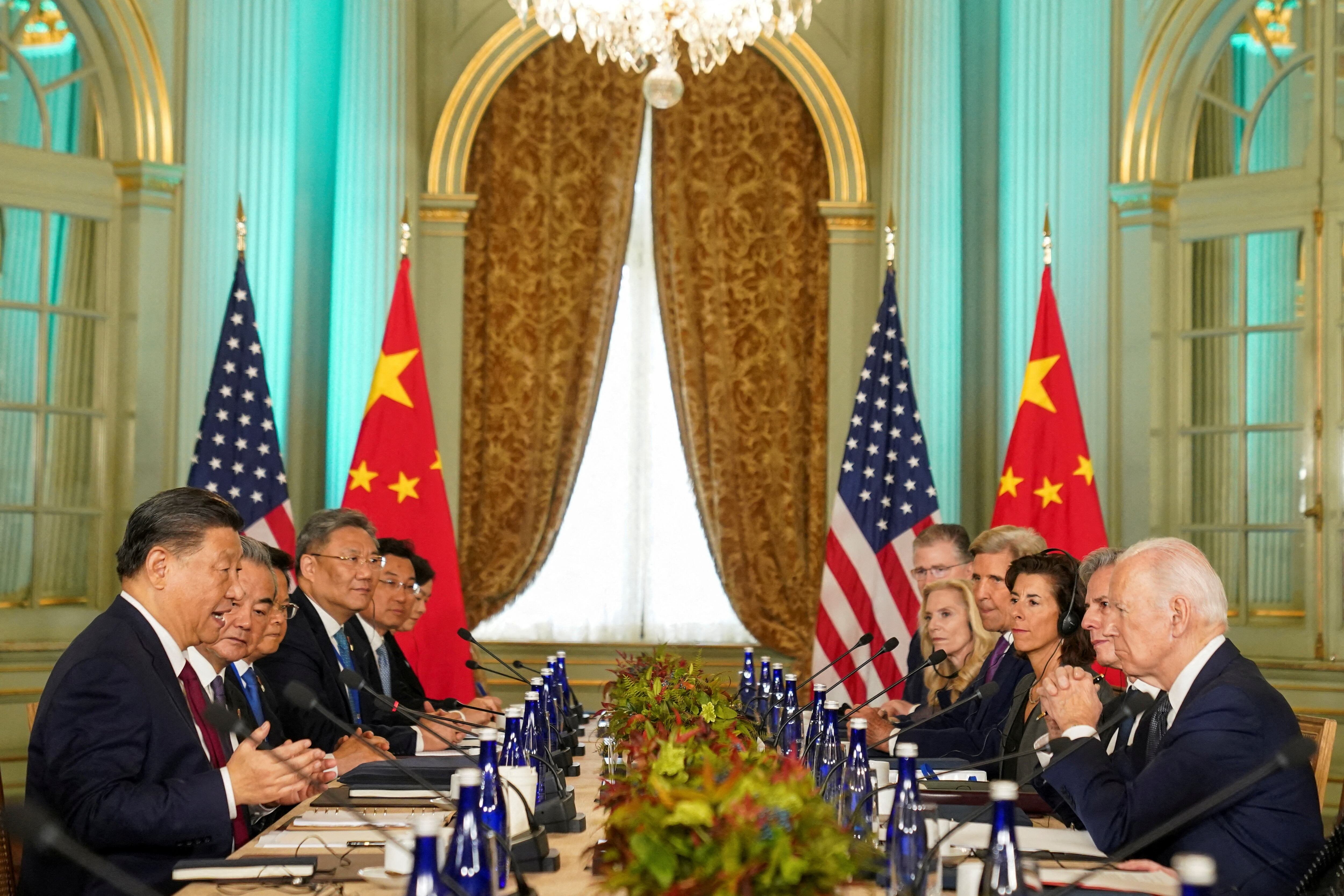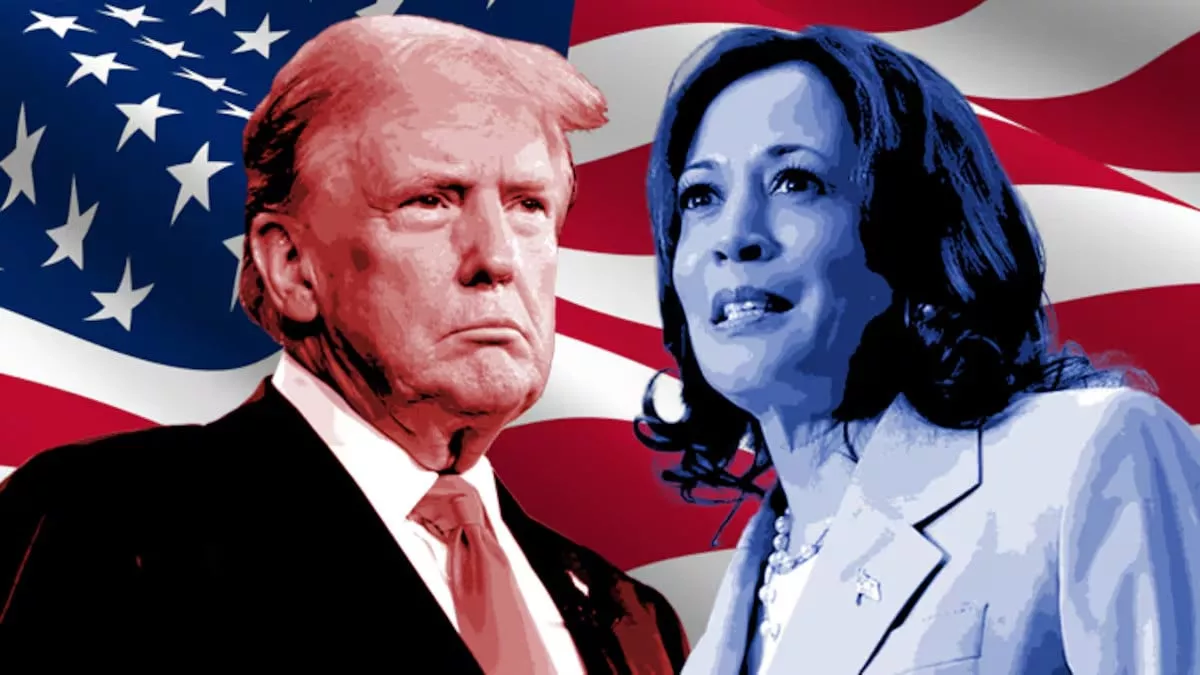As the 2024 US presidential election enters its final stretch, all eyes are on the shifting political landscape that could change the course of the nation's future. President Joe Biden, who once appeared to be the Democratic Party’s clear choice for re-election, has been unexpectedly sidelined due to concerns surrounding his age and increasingly frequent public missteps. Once the standard-bearer of his party, Biden has now taken a back seat, leaving a void at the top of the ticket.
This stunning turn has brought Vice President Kamala Harris into the spotlight as she leads the Democratic charge against former President Donald Trump, who is making history by running as the first convicted felon to seek the presidency. Trump’s campaign gained momentum after an assassination attempt and a strong showing in the first debate, where he effectively highlighted Biden’s cognitive decline. This surge helped him secure the Republican nomination for a third time, solidifying his grip on his base.
For Harris, this election represents a monumental opportunity—and a massive challenge. She steps into Biden’s shoes at a precarious moment, as polls show her trailing Trump in many key battleground states.

Image: Reuters
In becoming the Democratic nominee, she’s broken new ground as the first Black woman and the first person of South Asian descent to top a major party’s presidential ticket. Yet, her campaign faces a haunting historical parallel: Vice President Hubert Humphrey’s unsuccessful bid in 1968 to escape Lyndon B. Johnson’s shadow. Despite her energised appearance at the Democratic National Convention in Chicago, Harris’s struggle to distance herself from Biden remains evident, leaving her in a statistical tie with Trump.
Trump, ousted from office in 2021, continues to weaponise his divisive rhetoric, galvanising his supporters with familiar themes. Recently, his dangerous comments about potentially ending the electoral process if re-elected raised alarms.

Image: Reuters
Yet, his bluntness resonates with his base, even as he fuels controversy with remarks questioning Harris’s race. His team has been scrambling to define their strategy against Harris, who presents a unique challenge as a relatively unfamiliar and gender-opposite opponent. The former president’s campaign has focused on portraying her as a California liberal with minimal accomplishments, and Harris has yet to fully differentiate herself from Biden’s legacy. The race hinges on the undecided electorate, with both candidates vying for influence in a deeply divided nation.
Globally, the next president will inherit a complex foreign policy landscape, navigating America’s diminishing superpower status while juggling myriad crises from Gaza to Ukraine.
No Surprises for the World
Though the outcome of this election is pivotal for the US, it holds few surprises for the world, which continues to wrestle with its own chaos. Both Trump and Harris have largely avoided specifying their foreign policy strategies, particularly on ongoing conflicts in Ukraine and Gaza. Biden, who has often criticised Israeli Prime Minister Benjamin Netanyahu for not advancing peace efforts, finds himself increasingly worn down.

Image: Reuters
His administration’s commitment to supplying ammunition to Israel, despite the mounting Palestinian death toll, has raised doubts about his peace credentials. Harris, having stood by Biden on this issue, may continue this policy of unconditional support should she win.
Conversely, Trump has been unwavering in his support of Netanyahu, presenting a stark contrast to Harris’s more nuanced stance. While both candidates will likely adopt a tough position on China, Trump has already laid the groundwork for deterring Beijing, and Harris, thus far, has offered no significant departure from Biden’s approach to the geopolitical giant.
If Trump retakes the White House, established alliances like NATO may face a profound shift, while Harris is expected to maintain Biden’s strategy of reassurances, trying to keep the dwindling list of Western allies together. This strategy might only delay China’s growing influence in global affairs but offers few long-term solutions. The world, watching the US election from the sidelines, knows that whoever emerges victorious will shape the future of international relations for years to come.
Challenges of Foreign Policy
The US president wields considerable power in shaping global affairs, and the next occupant of the Oval Office will face significant foreign policy challenges. While Biden claims his presidency has made America safer, his handling of key events, such as the hasty withdrawal from Afghanistan, paints a different picture. This blunder is likely to tarnish his legacy, with some predicting it may define his political epitaph. The Middle East, a region that has shaped the legacies of many US presidents, is no less volatile today under Biden’s watch. His inability to pressure Netanyahu into protecting Gaza’s civilian population has only added to the tension.
Harris, having aligned herself with Biden on these issues, will have a difficult task convincing voters that she offers a different approach. Trump, meanwhile, remains an unapologetic supporter of Netanyahu and has no interest in de-escalating the conflict, as evidenced by his provocative decision to recognise Jerusalem as Israel’s capital during his first term. Should he win the election, this dynamic is unlikely to change.
In terms of relations with China, both Trump and Harris are expected to maintain a hardline approach. Trump has hinted at further escalation, while Harris has yet to signal any significant deviation from Biden’s policies. If tensions with China continue to rise, the next president will have to carefully navigate this delicate relationship, as it will have far-reaching implications for US global dominance and influence.

Image: Reuters
On the Ukraine front, both candidates face scrutiny for their proposed strategies. Harris, like Biden, has supported Ukraine’s fight against Russia, but the ongoing conflict has placed a heavy burden on America’s European allies. Trump has pledged to resolve the conflict quickly, though his peace plans remain vague. What is clear is that Ukraine will continue to be a hot-button issue for the next administration.
The Economic Challenge
Domestically, the incoming president will also have to contend with the US’s economic challenges. The global push to move away from US dollar dominance has gained traction in recent years, and rising tensions with China and Russia have only accelerated this trend. The next president will need to carefully balance the US’s economic interests while maintaining its influence abroad. Trump’s proposed tariffs on Chinese goods may resonate with his base, but they could also have long-term consequences for US consumers. Harris, on the other hand, is likely to continue Biden’s approach, though this too will come with challenges as the US grapples with inflation, debt, and lagging technological advancements.
The Tech War
The escalating tech war between the US and China will be another major challenge for the incoming president. Beijing’s retaliatory restrictions on key materials, such as gallium and germanium, have exposed vulnerabilities in the US supply chain. While these disruptions have not yet fully materialised, they highlight the delicate nature of the US-China relationship and the potential for further escalation. Harris, having been part of the Biden administration, is familiar with these issues but will need to chart her own course if she becomes president. Trump, on the other hand, has shown a willingness to escalate tensions with China further, and his return to office could lead to even more dramatic confrontations.
As the US prepares for its next chapter, the world watches closely, aware that the stakes have never been higher. Whether it’s Harris or Trump who emerges victorious, the path ahead is uncertain, and the challenges are immense. What is clear, however, is that the next president will play a pivotal role in shaping not just the future of America, but the world.









COMMENTS
Comments are moderated and generally will be posted if they are on-topic and not abusive.
For more information, please see our Comments FAQ